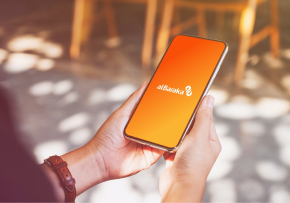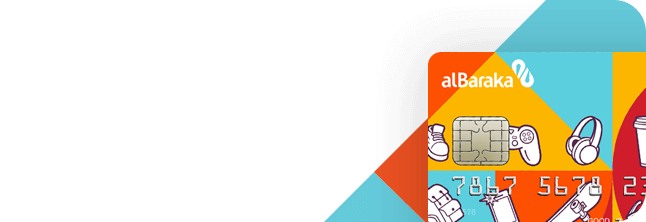Request Payment

With Request Payment, you can send payment requests, view your payment requests, and complete your money transfer transactions by accepting payment requests.
What is Request Payment?
Request Payment is a service that allows the creditor to request payment from the debtor and enables the debtor to respond to this request.
With Request Payment, you can send a payment request using the IBAN, Albaraka Account Number, TR QR Code, and Easy Address (mobile phone number, email address, TCKN, VKN, YKN, or passport number) information of the person you want to request payment from.
The debtor only needs to approve the incoming request. People who accept the payment request and make the payment will pay transaction fees according to the tariffs of the banks where the transfer is made.
How to create a payment request?
Both individual and corporate customers can initiate a payment request through Albaraka Mobile, requesting payment without waiting for the person owing them money to send it.
You can create your payment request after logging into Albaraka Mobile by following the steps: "Transaction > Money Transfers > Request Payment > New Transaction", or you can also create it from the Albaraka Mobile home screen by following the steps: "FAST Transactions > Request Payment > New Transaction."
With the new features of Request Payment, you can choose the method that suits you best to create a payment request!
Approve-Pay Immediately;
- If you want the money transfer to happen as soon as your request is approved, you can create a payment request using this option.
- You can offer the person paying the option to pay a part of the requested amount with the "Partial Payment" option.
Approve-Pay Later;
- You can select different days for the final acceptance and payment dates to determine when you will receive the payment.
Early Payment;
- You can allow the payer to make the payment earlier than the scheduled payment date.
How to track payment requests?
You can track your payment requests by following the steps: "Transaction > Money Transfers > Request Payment > Requests > Outgoing Requests" after logging into Albaraka Mobile, or by following the steps from the home screen: "FAST Transactions > Request Payment > Requests > Outgoing Requests."
How to view incoming payment request?
To view incoming payment requests, go to "Transaction > Money Transfers > Request Payment > Requests > Incoming Requests" in Albaraka Mobile, or you can view and approve or reject them via "FAST Transactions > Requests > Incoming Requests" on the home screen.
What are the features of Request Payment?
- Request Payment can only be made between banks that provide the Request Payment service.
- Request Payment can only be sent to people with the "Request Payment Preference: Open."
- To create a payment request, you must have the IBAN, TR QR Code, or Easy Address (mobile phone number, email address, TCKN, VKN, YKN, or passport number) information of the person you are sending the request to.
- Request Payment can only be used for money transfers and FAST transactions.
- You can give up to 90 days for the other party to approve the payment request.
FAQS
Who can use Request Payment?
All individual or corporate customers who use Albaraka Mobile can use it.
Are there any fees for Request Payment?
Creating a payment request is free. However, money transfers made in response to incoming Payment Requests are subject to our Bank’s transfer fees within the limits of Money Transfer or FAST transactions.
Is there a limit for Request Payment?
Request Payment is limited by Albaraka's Money Transfer and FAST transaction limits. You can send multiple payment requests if needed.
Who can I request money from using Request Payment?
You can send payment requests to both Albaraka accounts and accounts in other banks using Request Payment.
For which accounts can I create a Request Payment?
Payment Requests can be created for all non-term TL accounts.
How can I make a money transfer with Request Payment?
You can view the details of payment requests you receive via Albaraka Mobile. If your account balance is sufficient, the transfer will be automatically completed once you accept the request.
How can I access Request Payment?
You can access Request Payment via Albaraka Mobile by following the steps: "Transaction > Send Money > Request Payment. Click here to download Albaraka Mobile.
How can I change my Request Payment settings?
You can change your Request Payment preferences under "Transaction > Send Money > Request Payment " settings.
How long will it take to respond to my Request Payment?
Your Payment Requests will remain active for 90 days unless rejected by the person you requested or if no date is selected by you.
Can I cancel my Request Payment?
You can cancel a payment request in the "Pending" section of Incoming Payment Requests until the payment is completed.
You can cancel a payment request you sent in the "Outgoing Requests" section of the Request Payment menu until the payment is completed.
What should I do if the bank I entered doesn't appear when creating a Request Payment?
Currently, only banks authorized by The Interbank Card Center (BKM) offer this service, and other banks/institutions will be gradually included.
What is partial payment?
Partial payment allows the payer to pay part of the requested amount, and the remaining debt will be subject to a new payment request by the creditor. This option is optional for both individual and corporate customers.
What is early payment?
Early payment is an option that can be selected when creating a payment request. This option allows the payer to make the payment before the agreed payment date. It is available for both individual and corporate customers.

























